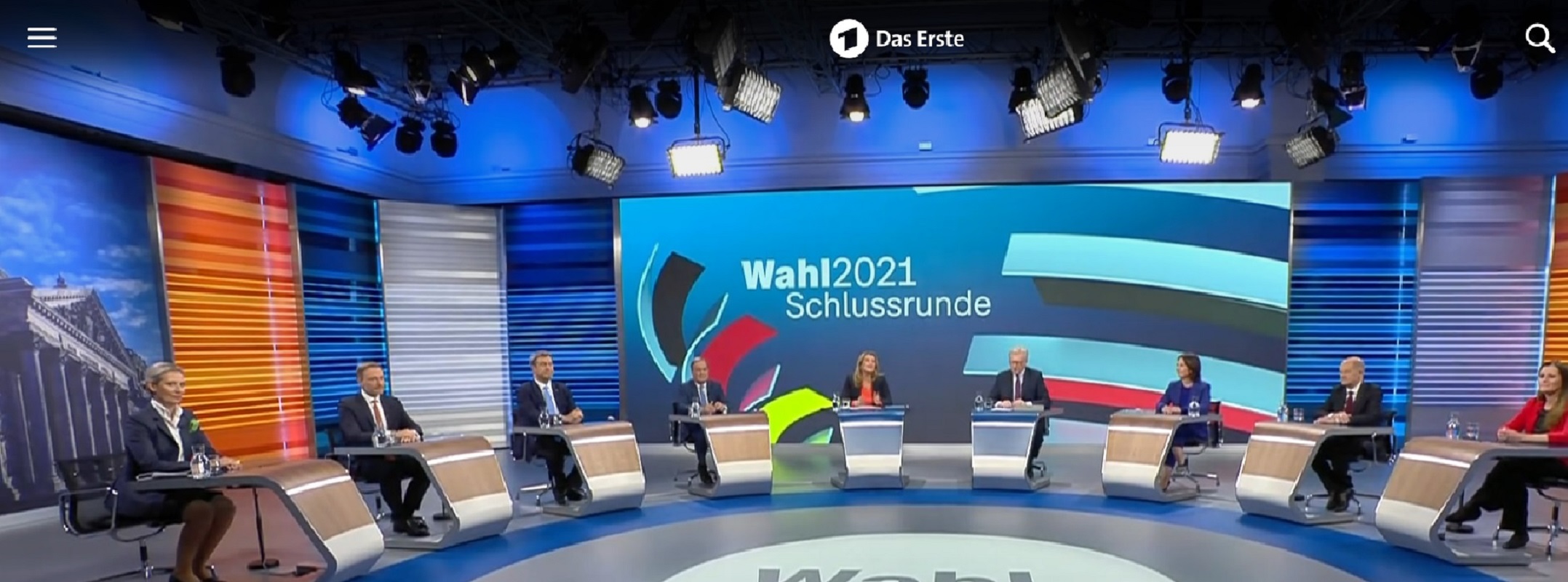German parties agree on urgent need for faster climate action in last debate before vote
Almost all parties expecting to make it into Germany’s next parliament after Sunday’s elections agree that the next government must quickly introduce a set of measures to boost emissions reduction progress. In the last joint debate before the vote on public broadcaster ARD, figureheads from all parties except for the far-right AfD said that fast and immediate action must be taken to ensure the country can still reach its 2030 climate target. The Green Party and the Left Party called for particularly rapid and concrete measures to cut CO2 output, such as exiting coal earlier than currently planned and massively expanding and supporting public transport.
“The question is whether we will achieve a true fresh start, as we did at many other points during our country’s history. We need to open a new chapter and make Germany climate neutral within the next 20 years,” Green chancellor candidate Annalena Baerbock said, adding that “this is not only about climate action but also about remaining internationally competitive.” Left Party head Janine Wissler said a possible immediate measure would be to introduce a speed limit on motorways, a step also supported by the Greens and the Social Democrats (SPD). She added that the way forward in mobility is to offer public transport at much lower fares instead of making car use far more expensive. “We need to re-activate train connections that have been shut down in the past years and give people an alternative to cars,” she argued. SPD chancellor candidate Olaf Scholz said bolstering renewables expansion would be the most urgent contribution to faster climate action that a new government needs to make.
Asked what he would personally do to cut his emissions footprint, Scholz argued that “using a bike as a politician will not help with anything. Innovation is the best we can do.” Conservative CDU candidate Armin Laschet said he is against too detailed legislation but promised a quick implementation of the Climate Action Law across all sectors. “The CO2 price is only the beginning,” Laschet said, adding that he would focus on a quick decarbonisation of the country’s vast industry sector. The leader of pro-business party FDP, Christian Lindner, said quicker planning and licensing procedures for companies that want to implement cleaner technologies would be the best way to fast-track climate action. “We need to be a model location for certain technologies that can also be employed elsewhere,” he said, criticising the fact emissions reduction plans “are simply not achievable in the next years,” particularly in mobility. AfD representative Alice Weidel reiterated her party’s position that climate change is nothing to worry about, arguing that hot phases in the global climate are a completely normal phenomenon.
Germany will vote for a new parliament on 26 September. While the SPD is currently leading the polls, a victory by the current chancellor party CDU is also still on the cards, opening the door to a vast array of possible coalition options. All parties apart from the AfD could potentially become part of a new government coalition at this point, meaning the country could be in for months of coalition talks after the election which could postpone the appointment of a new chancellor by parliament to 2022.

